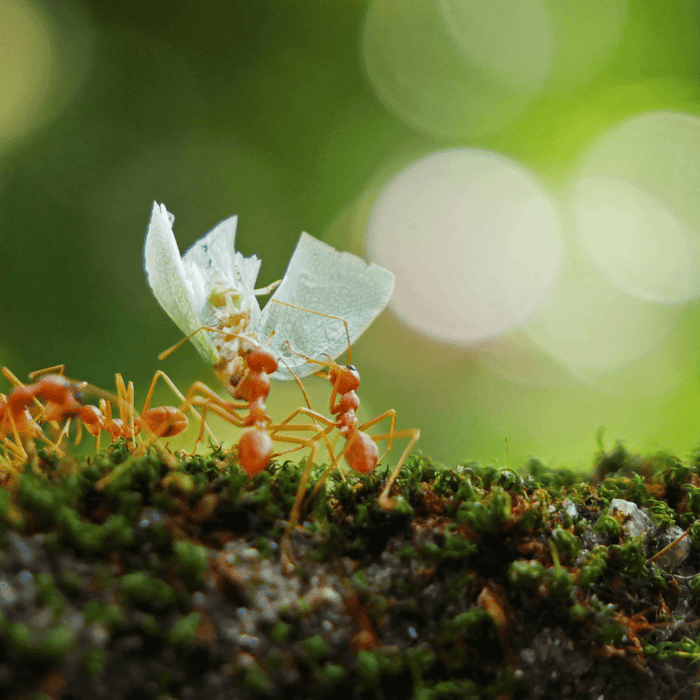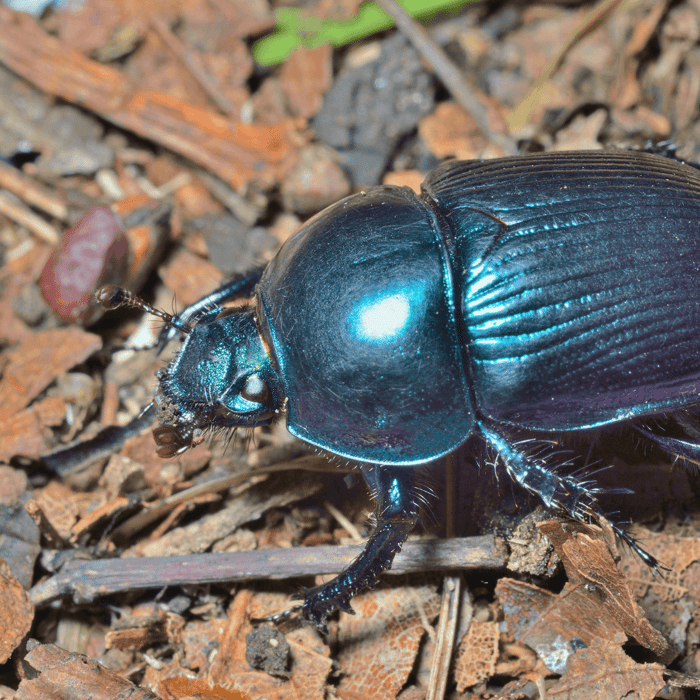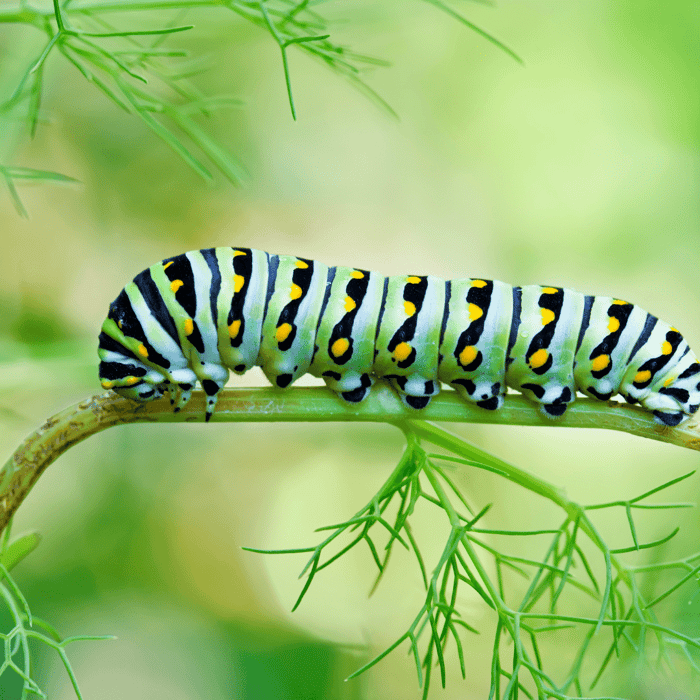As a passionate female gardener, I've encountered my fair share of challenges in the garden. One of the most common questions I get asked by fellow gardeners is are ants harmful to gardens. To answer this question, I've put together this in-depth article to explore the relationship between ants and gardens, the types of ants you might find, and how to control their populations. Plus, I'll provide a step-by-step guide to help you rid your garden of ants if necessary.
1. Understanding Ant Species in the Garden
There are over 12,000 known ant species worldwide, but only a few are commonly found in gardens. Some of the most common types of ants include:
- Fire ants
- Black ants
- Carpenter ants
Each species behaves differently, and their impact on your garden plants varies.
2. The Role of Ants in Gardens
Ants serve multiple purposes in gardens. They can be both beneficial and harmful, depending on the situation. Let's look at some of the ways ants affect parks:
A. Beneficial Roles
- Aerate the soil: Ants crawling through the earth create tunnels that help with aeration, allowing air, water, and nutrients to reach plant roots.
- Control pests: Some ant species, such as black ants, prey on pests like caterpillars and fly larvae, helping to keep their populations in check.
B. Harmful Roles
- Protect aphids: Ants have a symbiotic relationship with sap-sucking insects like aphids, which produce a sugary substance called honeydew that ants feed on. In return, ants protect aphids from predators, allowing them to damage garden plants.
- Carpenter ants: These ants can tunnel through wooden structures, potentially causing damage to your garden's infrastructure, like raised beds or trellises.
3. Identifying Ant Populations in Your Garden
It's essential to monitor your garden for ant activity regularly. Keep an eye out for the following:
- Ants crawl on plants, especially when accompanied by aphids or other sap-sucking insects.
- Ant nests or ant hills can indicate a growing ant colony.
4. When to Take Action Against Garden Ants
While ants can be helpful in some situations, you may need to control ants in your garden when:
- The ant population becomes too large, disrupting the balance of your garden ecosystem.
- Ants protect sap-sucking insects that are harming your garden plants.
- Carpenter ants are causing structural damage.
5. Natural Methods to Rid Your Garden of Ants
You can use several natural methods to control ant populations in your garden. Here are a few to consider:
- Diatomaceous earth: Sprinkle food-grade diatomaceous earth around the base of affected plants or ant nests. This powdery substance damages the exoskeletons of ants, eventually killing them.
- Boiling water: Pouring boiling water directly onto an ant hill can help eliminate an ant colony.
- Essential oils: Some essential oils, like peppermint and eucalyptus, can deter ants. Mix a few drops with water and spray it around affected areas.
Seed Safe Survival Seed Kit - 35 Variety Pack

$29.95
$49.95
Seed Safe Survival Seed Kit: The Ultimate Heirloom Collection for Self-Sufficient Gardening Introducing the Seed Safe - 35 Varieties of Heirloom Vegetable, Herb, and Fruit Seeds, the ultimate solution for gardeners who want to secure a bountiful future harvest. This… read more
6. Chemical Control Options for Ants
If natural methods don't work, you might need to resort to chemical control options to rid your garden of ants. Some effective chemical treatments include:
- Bait stations contain a slow-acting poison that ants carry back to their colony, eventually killing the entire colony.
- Insecticidal sprays: These can target specific ant species or ant nests directly. Be cautious when using these sprays, as they can harm beneficial insects.
Always follow the manufacturer's instructions when using chemical control methods, and consider the potential impact on non-target organisms in your garden.
7. Preventing Ant Infestations in Your Garden
Prevention is always better than cure. To minimize the chances of an ant infestation, follow these steps:
- Maintain a clean garden: Keep your garden free of debris and excess plant material, which can provide shelter for ants and other pests.
- Prune plants regularly: Pruning your garden plants helps reduce the chances of ants protecting aphids or other sap-sucking insects.
- Eliminate food sources: Store compost and trash in sealed containers, and clean up any fallen fruit or vegetables to minimize the food available for ants.
8. Encouraging Beneficial Insects to Help Control Ants
Incorporating plants that attract beneficial insects, like ladybugs and lacewings, can help control ants and other pests in your garden. Some plants that attract beneficial insects include:
- Yarrow
- Marigolds
- Fennel
- Dill
- Sunflowers
By creating a balanced ecosystem in your garden, you can reduce the need for chemical interventions and promote a healthy environment for your garden plants to thrive.
9. The Importance of Proper Identification
Before taking any action against ants in your garden, correctly identifying the species you're dealing with is crucial. As mentioned, some ant species can be beneficial, while others are harmful. Proper identification can save you time and effort, ensuring you're targeting the suitable ant species without harming the helpful ones.
To identify ants, observe their size, color, and nesting habits. If you're unsure, consider consulting an expert or using an online identification guide to help determine the species you're dealing with.
10. Integrated Pest Management (IPM) for Ant Control
Integrated Pest Management (IPM) is an environmentally-friendly approach to pest control that combines various strategies to control pests in the most effective and least harmful way possible. When it comes to controlling ants in your garden, IPM includes:
- Regular monitoring of ant populations and activity
- Proper identification of ant species
- Cultural practices to prevent infestations, like maintaining a clean garden and eliminating food sources
- Using natural control methods, such as diatomaceous earth or essential oils
- Encouraging beneficial insects by planting insect-attracting plants
- Resorting to chemical control methods only when necessary
Using an IPM approach, you can minimize the impact on your garden ecosystem while effectively managing ant populations.
11. Understanding the Limits of Ant Control
It's essential to recognize that completely eliminating ants from your garden may not be possible or even desirable. Ants play a crucial role in the ecosystem and can benefit your garden. The goal should be to manage ant populations to minimize their harmful effects while maintaining a healthy and balanced garden.
12. Collaborating with Your Gardening Community
Finally, consider engaging with your local gardening community to share knowledge and experiences about controlling ants in gardens. Local gardening clubs or online forums can provide valuable insights and practical tips for managing ants and other pests in your area.
By working together and sharing information, gardeners can help each other create healthy, thriving gardens that benefit from a balanced ecosystem, including the presence of ants.
With this comprehensive guide, you now have the knowledge and tools to effectively manage ants in your garden, ensuring a healthy and balanced ecosystem for your plants to thrive. Remember, the key is understanding the different ant species, their roles in parks, and when and how to control their populations. Happy gardening!
Conclusion
Ants can play both beneficial and harmful roles in gardens. Understanding the different ant species and their impact on garden plants is crucial in determining whether you need to rid your garden of ants. You can maintain a healthy and balanced garden ecosystem by monitoring ant populations, using natural and chemical control methods when necessary, and taking preventative measures.
For more information on gardening, visit Gardener's Basics, where you'll find a wealth of knowledge on various gardening topics.

Frequently Asked Questions (FAQs) about Ants in Gardens
In this section, we'll address some common questions gardeners have about ants and their impact on gardens.
Q1: Are all ants harmful to gardens?
No, not all ants are harmful to gardens. Some ant species, like black ants, can be beneficial by helping to control pests and aerate the soil. However, other species, like fire ants and carpenter ants, can be harmful by causing damage to garden plants or structures.
Q2: Can ants be beneficial to gardens?
Yes, ants can be beneficial to gardens in several ways. They help aerate the soil by creating tunnels as they crawl through it, allowing air, water, and nutrients to reach plant roots. Some ant species also prey on pests like caterpillars and fly larvae, helping to keep their populations in check.
Q3: How can I control ants in my garden without using chemicals?
There are several natural methods you can use to control ant populations in your garden, including:
- Sprinkling food-grade diatomaceous earth around the base of affected plants or ant nests.
- Pouring boiling water directly onto ant hills to eliminate ant colonies.
- Using essential oils like peppermint and eucalyptus mixed with water as a deterrent spray.
Q4: How can I prevent ants from infesting my garden?
To minimize the chances of an ant infestation, maintain a clean garden by removing debris and excess plant material, prune plants regularly, eliminate food sources by storing compost and trash in sealed containers, and clean up any fallen fruit or vegetables.
Q5: What plants can I grow to attract beneficial insects that help control ants?
Incorporating plants that attract beneficial insects like ladybugs and lacewings can help control ants and other pests in your garden. Some plants that attract beneficial insects include yarrow, marigolds, fennel, dill, and sunflowers.
Q6: Should I try to eliminate all ants from my garden?
No, it's not necessary to eliminate all ants from your garden. Ants can play a beneficial role in the ecosystem by aerating the soil and controlling some pests. Only take action against ants if their population becomes too large, they are protecting sap-sucking insects that harm your garden plants, or they are causing structural damage.
Remember that maintaining a balanced ecosystem in your garden is essential for promoting healthy plant growth. By understanding ants' different roles, you can make informed decisions about when and how to control their populations.







